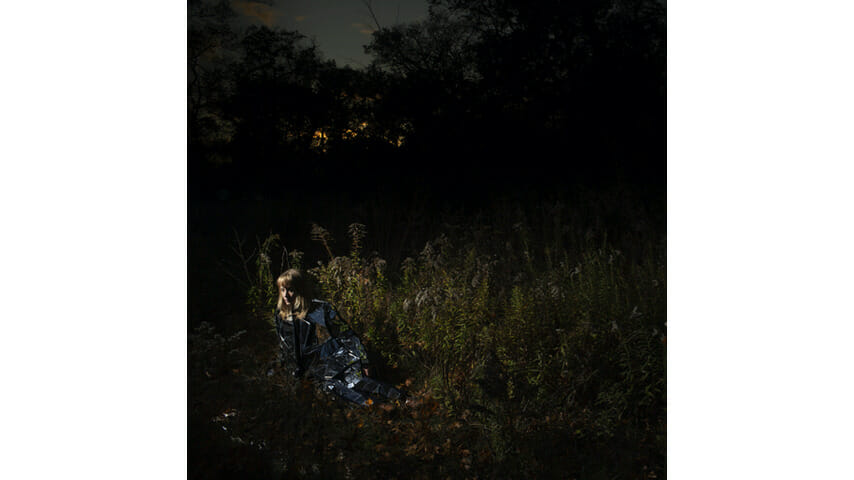The Weather Station Reckons with Environmental Dread on the Brilliant Ignorance

Ignorance, the fifth and best album by The Weather Station, is the kind of album that arrives in the middle of an artist’s discography and marks a clear, penetrating break with everything that came before it. Think The Dreaming, or Kaputt: abrupt stylistic leaps that subvert and explode whatever category the artist previously seemed to occupy.
In The Weather Station’s case, that category was folk music. For more than a decade, the Canadian band—led by singer and former child actor Tamara Lindeman—specialized in delicate indie-folk, rooted in fingerpicked guitars and light, rustling percussion. 2015’s Loyalty and 2017’s self-titled follow-up enlarged the band’s sonic range and empathetic lyrics, but still operated within the folk tradition.
Ignorance is a departure. More specifically, this album is a stunningly assured plunge into a sleek, buzzing jazz-pop wilderness. Lindeman’s guiding impulse here is rhythm: interlocking polyrhythms (“Robber”), hi-hats that rattle and hiss like gently persistent metronomes (“Wear,” “Separated”), even some outright four-on-the-floor beats, which spring to life on the sparkly disco-pop of “Parking Lot” and “Heart.” Trilling jazz sax and flute licks (played by Brodie West and Ryan Driver, respectively) coil eagerly around Lindeman’s melodies, which are the best and most urgently felt of her career. The album’s lush, layered textures recall a certain mid-’80s fusion sound, perhaps best exemplified by Talk Talk’s first masterpiece The Colour of Spring, which this album directly evokes with its opening rhythmic pulse. Subtle period flourishes, like the palm-muted guitar licks that coat the margins of “Heart,” land just this side of cheesy. There’s not a weak track here, though some of the lightly psychedelic mid-tempo numbers—”Tried To Tell You,” “Parking Lot,” “Separated”—do tend to blur together around the album’s midsection.
Much of Ignorance was inspired by Lindeman’s obsessive research into climate change and accompanying dread at the existential threat it poses. In interviews promoting the album, she has described attending climate demonstrations and trying to process the sense of having been “born into this world that’s like, ‘Oh, by the way. The future’s going to be apocalyptic. But do your thing!’” On “Robber,” the album’s electrifying indictment of an opener, Lindeman channels that dread into anger at the corporate thieves who’ve profited from environmental disaster. She indicts their greed, but also her own naiveté at having once doubted all this. “I never believed in the robber,” she admits, as cinematic orchestration swells up in terror. “I never saw nobody climb over my fence / No black bag, no gloved hand.”
While her songwriting has reached a new peak, Lindeman’s vocal presence has grown in surprising ways, too. On “Tried to Tell You,” she leaps effortlessly into a soulful falsetto as ribbons of strings dive and swoop around her voice. On “Subdivisions,” the wistful closing track, she doesn’t just sing the word “clear”; she sustains it for seven riveting seconds and four different pitches.
And on “Atlantic,” she’s more expressive than ever, fitting a world of pathos and awe into the way she utters the mere words “My god.” The song describes the feeling of marveling at natural beauty and yet being unable to let go of dread, unable to dismiss grim thoughts of what humans have done or will do to all that beauty. “I should get all this dying off my mind,” Lindeman tells herself, as fluttering woodwinds and keyboards hover above the mix like the shearwaters mentioned in the lyrics. “No, really / Why can’t I just cover my eyes?” Lindeman’s voice, with its bright, magnetic presence, has drawn endless comparisons to Joni Mitchell’s, but here she sounds a little like Laurie Anderson—half-singing, half-speaking, conversational and bemused, her voice alive with the surreal and horrific reality of the world outside.
Many songs about environmental dread center around bleak visions of future climate apocalypse, but Lindeman seems more interested in the questions of the here and now, of humans making emotional sense of the complicated present. On “Tried to Tell You,” she imagines herself pleading with a friend who has betrayed some personal or moral conviction, and though the track is lovely in a lush, understated way, it captures the fruitlessness of those discussions. Later, Lindeman confronts her own unwillingness to temper her passions. “There are many things you may ask of me, but don’t ask me for indifference,” the songwriter sings on “Heart.” It’s a rousing nonapology for feeling a little too hard, for believing too strongly. And it’s the vivid power of that belief that makes Ignorance one of the best albums to emerge in this strange young year.
Zach Schonfeld is a freelance writer and journalist based in New York. He contributes regularly to Paste, Pitchfork, Vulture, and other publications. Previously, he was a senior writer for Newsweek. His first book was published in November 2020.